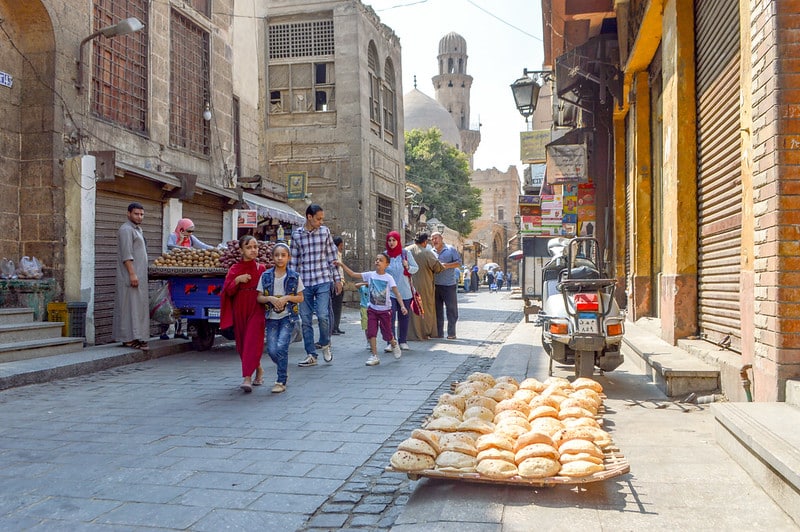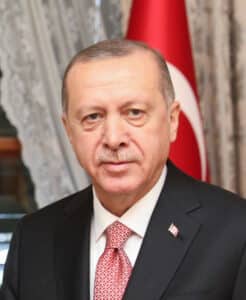Bread on sale in the streets of Cairo (photo: Flickr)
The Russian invasion of Ukraine is set to increase the market price of wheat for the upcoming time. Middle East and North African (MENA) countries are heavily dependent on wheat import from both countries. Russian and Ukraine are among the top exporters of wheat in the world – and prices have risen by 35% after the invasion. For countries in the MENA, it could have far-reaching societal consequences. As in the past, bread has been a key symbol of popular uprisings in the region.
“Everyone is looking for other markets as it’s becoming increasingly impossible to buy stocks from Ukraine or Russia,” a Middle Eastern commodities banker told. “The market is not expecting Ukrainian and Russian exports to resume until the fighting ends,” another trader said.
The MENA relies on wheat import
The region accounts for the highest wheat imports worldwide – essential to supply its rapidly growing population in regions where wheat cultivation is not viable. While Gulf countries rely on their vast economic reserves from fossil fuels – other countries cannot easily afford skyrocketing market prices.
For example, Egypt, the world’s largest wheat importer, bought 85% of its wheat from Russia and Ukraine last year. It expects an erosion of strategic reserves, as bread is already subsidized to prevent the poorest from accessing basic needs. It is therefore expected that Egypt will be most endangered by the anticipated wheat crisis. Between April 2020 and December 2021, prices already rose with 80%. At the time, President Sisi said: “I cannot provide 20 loaves of bread at the cost of one cigarette.”
Tunisia, Lebanon, and Sudan seem also at great risk. These countries already are battered by a faltering economy and import 60-80% of wheat from Russia and Ukraine. A deteriorating economy has been a key factor in fuelling public unrest and anti-government protesting in these countries. In Tunisia, the government controls the price of bread too – but worries remain as its economy is in a dire position. A day labourer in Tunis commented that “if the price of bread goes up, it’ll mean cutbacks elsewhere. We need the bread.” The government already rationed flour in shops and reduced bread stocks. In the country, many fear for a ‘Lebanon scenario’.
Turkey is less reliant on wheat imports as it self-produces 50% of consumption. However, the country still expects higher prices. The Turkish citizen is already hurt by a stagnant economy and soaring inflation. With an election year coming up, these problems could add to the current pressure on the Erdogan administration.
In Syria, wheat is also rationed. And the World Food Programme has indicated that Yemen is set to have a ‘catastrophe’, as it also heavily relies on imports. As always, the people most in need suffer the most from conflict and economic crisis.
The MENA’s precarious situation
The young, growing populaces in the MENA may well be struck hard by growing wheat prices. It is imperative that the position of the very vulnerable in the region is not forgotten. In the upcoming months, the situation can become dire in some countries – therefore financial assistance could be necessary.
Furthermore, in various countries in the MENA, its authoritarian heads of state often walk a tight rope to stay in power. Current developments could vastly impact their position of power in various countries. Next to financial support to the most deprived, it is pivotal that people have the freedom to protest, assemble and critique its governments. A deteriorating economy has often led to more government repression to keep its people in order – this cannot be overlooked in these tricky times.
Sources: DW Al Jazeera Reuters The Guardian World Food Programme
Photo: Flickr



